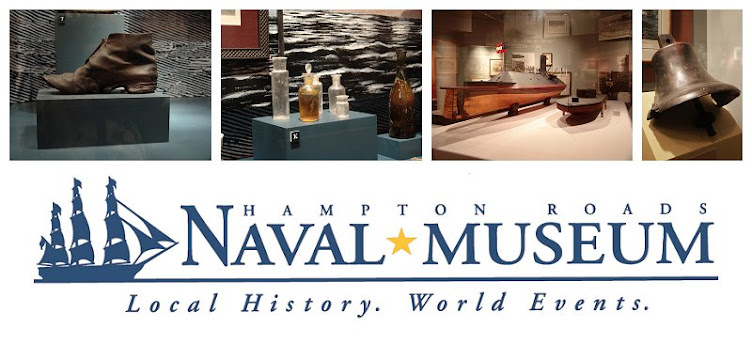 |
| Artist's conception of Army Supply Base Norfolk |
 |
| An unknown artist drew this interpretation of workers laying concrete pilings at the Supply Base |
When the United States declared war on Germany in 1917, the infrastructure to launch and support a major expeditionary force from the United States to Europe did not exist. The Navy needed a major shore installation for its "Second-to-None" fleet expansion that began in 1916. To accomplish this goal, the Navy started Naval Operating Base Hampton Roads at Sewell's Point.
 |
| 1919 map of Norfolk showing NOB Hampton Roads and Army Supply Base Norfolk |
For its part, the Army needed facilities to support the American Expeditionary Force (the main U.S. Army outfit in France) and began building a series of supply bases in major American ports on the East Coast. These bases would collect war supplies shipped in by rail and then load them on Navy or Army transport vessels, which then took them to the front lines.
The Army intelligently located these depots near the Navy's warships. This way, transport vessels would not have to go far to pick up their armed escorts to shepherd them across the U-boat-infested Atlantic Ocean. Thus, the Army began building Army Supply Base Norfolk right on the Elizabeth River, just a mile south of Naval Operating Base Hampton Roads.
The Army awarded the construction contract to the Porter Brothers Company out of Spokane, Washington. Construction began in late 1917 and the contractors finished two modern concrete piers with warehouses by mid-1918. The contractors also constructed a small headquarters and a hospital. With the Virginian Railroad servicing the base, the ships immediately began using the new facility to ship war supplies across the Atlantic.
| Pier 1, Army Supply Base Norfolk, with two transports ready to take supplies overseas. |


No comments:
Post a Comment